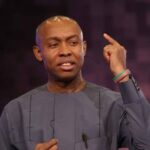Movement building and civic engagement is not new to the African continent. However, with the dawn of social media, these movements have increasingly gone global and taken on different dimensions -movements are increasingly showing solidarity and support from global communities that are not directly affected however empathise with their cause and lend their social media presence to amplify their voices.
This is becoming increasingly true in the African context, where African activists are increasingly finding their voices amplified by allies across the continent. This has manifested in recent years in Sudan with protests against the former President Omar al-Bashir -images of a female poet in the protests went viral prompting hashtags such as #SudanUprising to trend across platforms- some of which were banned in Sudan itself. In Nigeria in 2020 ‘End SARS’ became a decentralised social movement and a series of mass protests against police brutality in Nigeria, however quickly gained traction in other countries and amongst African diaspora in particular.
While Africa is diverse in cultures, histories and challenges – many of the grievances African youth, women and other marginalised faces are similar. So is social media the path to success for future social-political movements? And what does this mean for the future of leadership and civic engagement on the continent?




